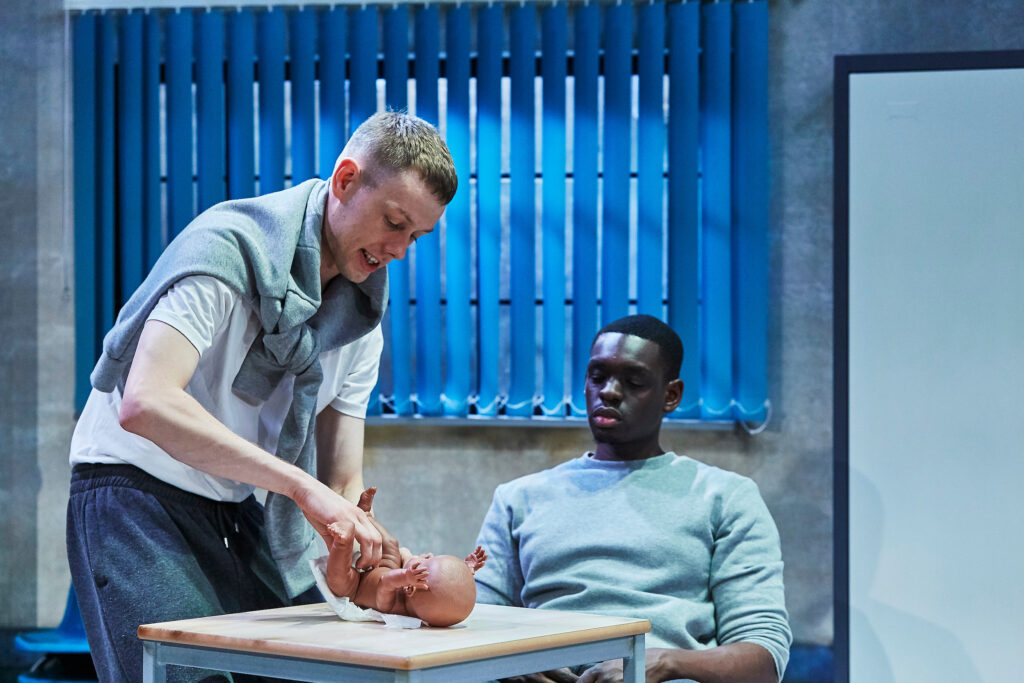Streaming 5 – 28 February 2021 – book via https://papatango.co.uk/product/shook/
4****
Reviewed by Claire Roderick
Winner of the Papatango New Writing Prize in 2019, Samuel Bailey’s Shook had a successful Southwark Playhouse run, and was due to transfer to Trafalgar Studios last year. This recorded production, directed by George Turvey in collaboration with James Bobin, brings the tension and dark humour to the screen brilliantly and watching it at home rather than being in the communal atmosphere of a theatre intensifies the feelings of institutionalisation and isolation the play evokes.
Set in a nondescript classroom in a Young Offenders Institution, three teenagers are taking parenting classes with their teacher, Grace (Andrea Hall). Bailey has written three characters that are instantly recognisable to any teacher or youth worker, but these aren’t cliches.
Cain (Josh Finan) is a whirlwind of nervous energy, never stopping talking and moving and being verbally aggressive, but it is soon apparent that his bravado is a front to hide his fear when Riyad enters. Riyad (Ivan Oyik) has plans for his future – he is studying for his GCSE in maths and wants his own business, but the arrival of someone from his past could destroy his plans. Jonjo (Josef Davies) is non-verbal at first, but Riyad spots the danger beneath his soft exterior.
Andrea Hall is impressive as the out of her depth Grace but doesn’t really have much to do. Ivan Oyik’s Riyad is powerful and determined, with Oyik managing to convey his drive and developing sense of responsibility effortlessly as he becomes a de facto big brother/father figure to the sensitive Jonjo. Josef Davies handles Jonjo’s twitches and speech impediment sensitively and sparingly in his contained but moving performance, and Josh Finan is almost exhausting to watch, nailing the showy behaviour that Cain has learned to use to survive.
Bailey allows the audience to form instant judgements about each character based on their initial interactions, which play out like a David Attenborough documentary on masculinity, but then shows the young men gradually bonding and opening up about their lives outside the institute. Their back stories are brutal but not sensational and cast a light on their actions and expectations for the future. None of the teenagers have fathers, and what fatherhood means to each of them is wildly different, whilst they are sceptical about the classes as the skills they are learning may not be useful by the time they get out. The hierarchy and violent power struggles in the institute are a constant topic of conversation, but the bartering of Dib Dabs and Blackjacks reminds the audience of the youth of these characters. Bailey’s dialogue is sharp and funny, and he has written three lovable but tragic young men that you can’t help rooting for. Their inability to escape the cycles of violence, poverty and aggression from their childhood is well written and non-judgmental, with the question “What was he supposed to do?” lingering long after the play has ended.
Shook doesn’t give a hopeful view of society, but amongst the dark and dangerous themes humour and humanity shine through in this excellent transfer from stage to screen.

